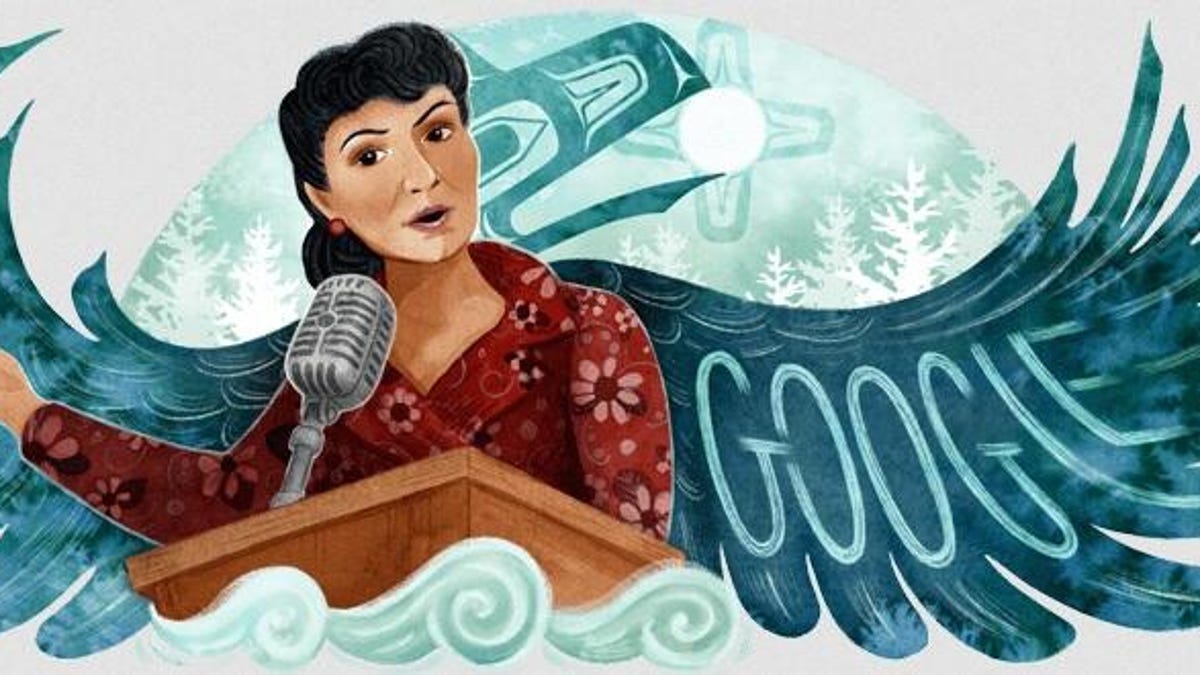Google Doodle celebrates civil rights activist Elizabeth Peratrovich
Peratrovich, of Alaska's indigenous Tlingit tribe, campaigned for the US' first antidiscrimination law after encountering "No Natives Allowed" signs.

Google honors Elizabeth Peratrovich.
Google on Wednesday dedicated its Doodle to Elizabeth Peratrovich, an Alaska Native civil rights advocate who was instrumental in creating the first antidiscrimination law enacted in the US. The Doodle marks the day in 1941 when Peratrovich and her husband launched their campaign to end discrimination in Alaska with a letter to the territory's governor protesting a sign on a hotel door in Juneau, Alaska, that read "No Natives Allowed."
Peratrovich, a member of Alaska's indigenous Tlingit tribe, was born in 1911, a time of rampant segregation in the territory. She was adopted after being orphaned at a young age and went on to attend college in Bellingham, Washington.
In 1931, she got married, and 10 years later she and her husband, Roy, moved with their three children to Juneau, where they encountered discrimination while trying to secure housing and gain access to public places. They petitioned the state to prohibit the "No dogs or Natives allowed" signs that were common at the time.
"The proprietor of Douglas Inn does not seem to realize that our Native boys are just as willing as the white boys to lay down their lives to protect the freedom that he enjoys," they wrote in a letter to Ernest Gruening, the territory's governor.
The governor agreed and joined forces with the Peratrovichs to pass an antidiscrimination act, but their first attempt failed in 1943. They continued to campaign for the next two years, and when a second bill reached the Senate in 1945, Elizabeth Peratrovich took to the podium when the floor was opened to public comments.
"I would not have expected that I, who am barely out of savagery, would have to remind the gentlemen with 5,000 years of recorded civilization behind them of our Bill of Rights," she said, prompting the gallery to break out in wild applause.
After years of trying to get an antidiscrimination bill passed in the state, the Peratrovichs saw the passage of Alaska's Anti-Discrimination Act of 1945, nearly 20 years before Congress passed the historic Civil Rights Act of 1964.
In 1988, the Alaska Legislature established Feb. 16 -- the day in 1945 when the act was signed -- as Elizabeth Peratrovich Day to honor "her courageous, unceasing efforts to eliminate discrimination and bring about equal rights in Alaska."
Elizabeth Peratrovich died in 1958 at the age of 47 after battling breast cancer.

